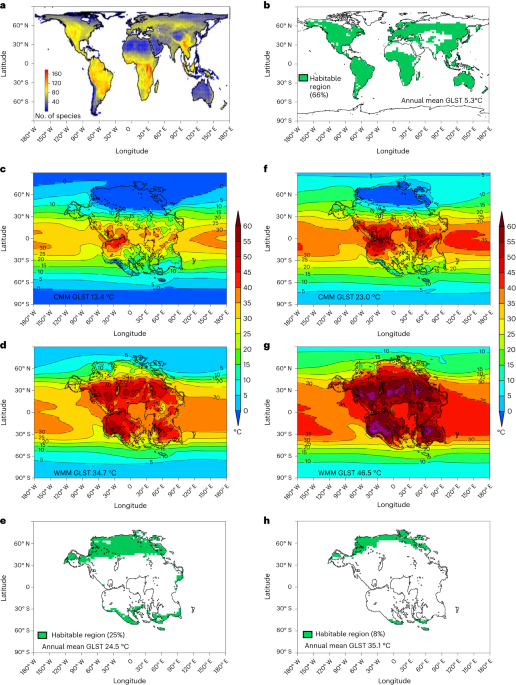For years, experts have been warning humanity about the impact of global warming.
As temperatures rise, there is concern about the world's food supply, rising sea levels and regions of the Earth becoming too hot to live in.
According to a study published in the journal Nature Geoscience, led by the University of Bristol, the Earth could become a hot, dry and largely uninhabitable super-continent, with the entire landmass merging into one giant terrain.


According to Wion, the study used the first supercomputer climate models of the distant future and showed that the world will have more volcanic eruptions that will emit huge plumes of carbon dioxide, further increasing the temperature.
The Sun could become hotter and brighter in the sky, heating the Earth more than ever and causing the average temperature to be between 40 and 50 degrees Celsius.
Alexandrer Farnsworth, lead author of the study and senior research associate at the University of Bristol, said that "the newly-emerged super-continent would effectively create a triple whammy, comprising the continentality effect, a hotter Sun and more CO2 in the atmosphere, increasing the heat over much of the planet".
The result is a hostile environment with no food or water sources for mammals. Widespread temperatures of between 40 and 50 degrees Celsius and even greater daily extremes, exacerbated by high humidity, would eventually seal our fate.
Humans - along with many other species - would die due to their inability to release this heat through sweat, cooling their bodies.

According to the study, even if humanity stopped using fossil fuels, this would not prevent extinction. Even if humanity survives until the event, there will be a total extinction.
The only advantage is that the event is 250 million years away.
Eunice Lo, co-author of the study and a researcher in Climate Change and Health at the University of Bristol, said that "it is vitally important not to lose sight of our current climate crisis, which is the result of human emissions of greenhouse gases".
"Although we are predicting an uninhabitable planet in 250 million years' time, today we are already experiencing extreme heat that is detrimental to human health. That's why it's crucial to achieve net-zero emissions as soon as possible," he concludes.






